YANMAR GREEN CHALLENGE2050
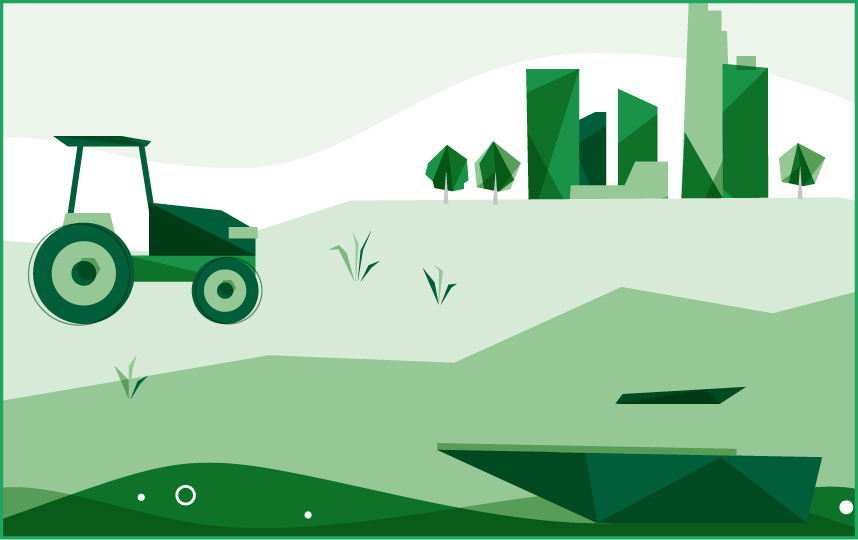
ආයතනික ක්රියාකාරකම් වලින් ශුන්ය GHG විමෝචනය අවබෝධ කර ගන්න
අලෙවි කරන නිෂ්පාදන සහ ආයතනික ක්රියාකාරකම් වලින් කාබන් මධ්යස්ථභාවය අවබෝධ කර ගන්න
කාර්මික විප්ලවයේ සිට ගෝලීය උෂ්ණත්වය ඉහළ යාමට හේතු වී ඇත්තේ මානව ක්රියාකාරකම් වලින් හරිතාගාර වායු (GHG) විමෝචනය වීම හේතුවෙනි.
Challenge 1 යටතේ, සමස්ත Yanmar සමූහය පාරිභෝගික පහසුව සඳහා බාධාවකින් තොරව විකල්ප ඉන්ධන, එන්ජින් සහ ඉන්ධන සෛල පද්ධති වැනි විවිධ හරිත බලශක්ති ප්රභවයන් සමඟ ගැළපෙන හරිත බලශක්ති දුම්රියන් මෙන්ම කෘෂිකාර්මික හා ඉදිකිරීම් යන්ත්රෝපකරණ සංවර්ධනය කර අලෙවි කරනු ඇත. 2050 වන විට කාබන් උදාසීනත්වය ලබා ගැනීම සඳහා බලශක්ති දුම්රිය.
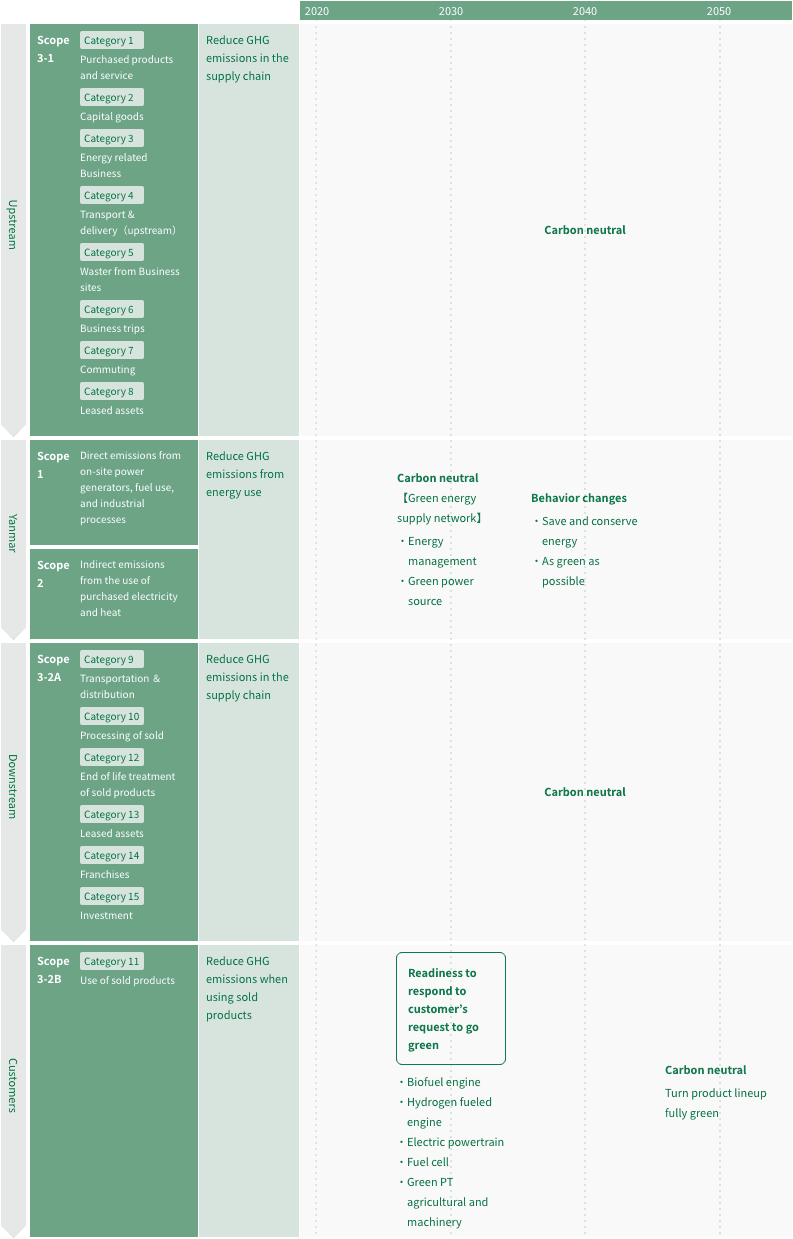

සංසරණ සම්පත් මගින් ආයතනික ක්රියාකාරකම් වලින් පරිසර බලපෑම ශුන්ය බව අවබෝධ කර ගන්න
එක් එක් තේමා හතර සඳහා අඩු කිරීම, නැවත භාවිතා කිරීම සහ ප්රතිචක්රීකරණය ප්රවර්ධනය කරන්න
In "Challenge 2", we set four themes and goals aiming to realize corporate activities to be environmental impact free. For example, in Theme 1 "Waste Reduction and Recycling," we will minimize the resources used in all aspects of our corporate activities, and at the same time, make all the resources we use recyclable by 2040. In this way, we aim to become a company that supports beautiful lifestyles while protecting the global environment from current activities, we set intermediate goals for 2030-2040 for each theme, and introduce improvements and new mechanisms to save the global environment step by step.
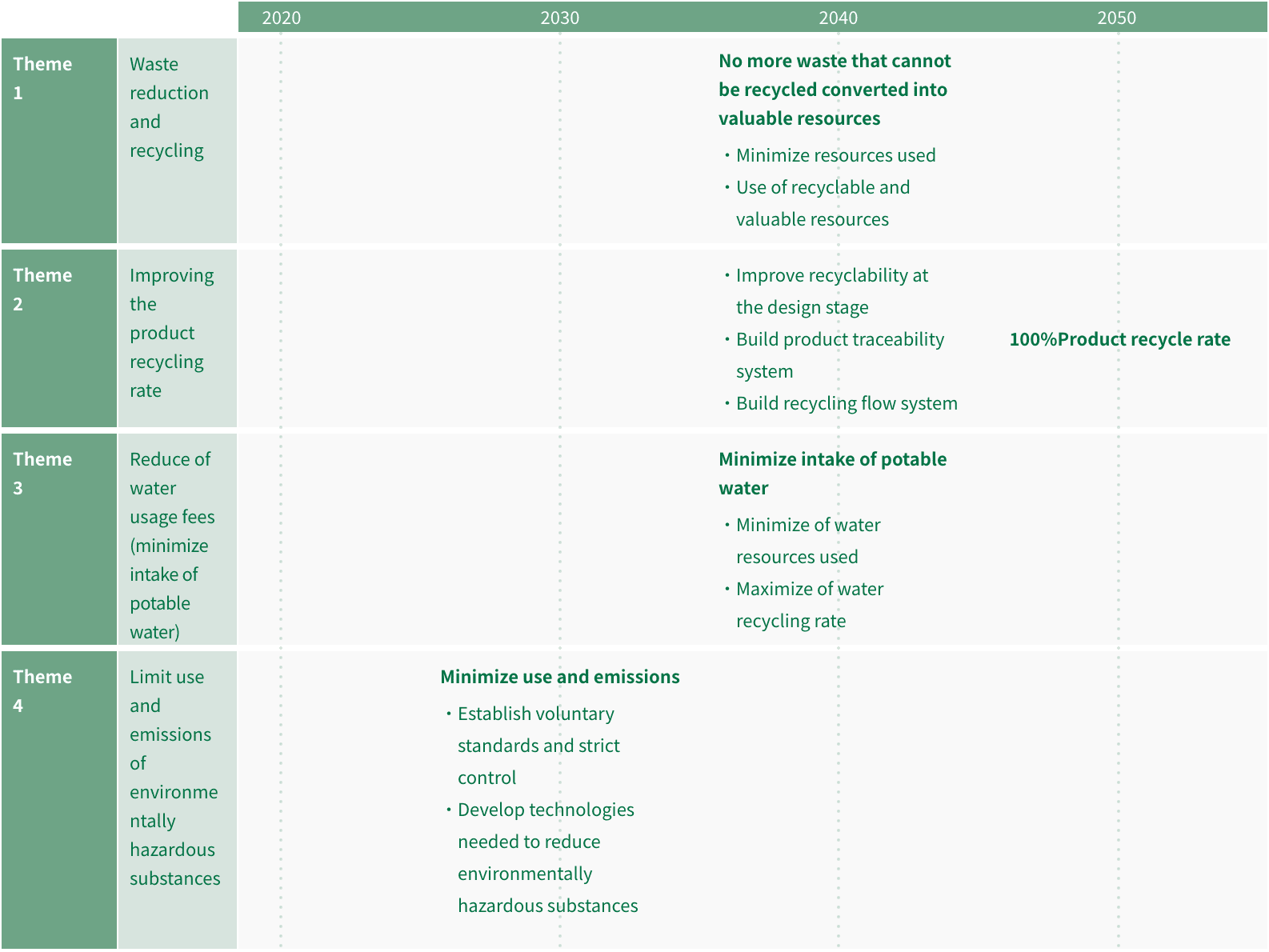

පාරිභෝගිකයින්ගේ සෘණ GHG විමෝචනය සහ සම්පත් සංසරණයට දායක වන්න
සාම්ප්රදායික ආයතනික ක්රියාකාරකම්වල රාමුවෙන් ඔබ්බට නව විසඳුම් මාලාවක් සැපයීම.
Under Challenge 3, the Yanmar Group will propose solutions to convert customer activities into GHG-negative and resource-recycling activities as active GHG reduction activities outside of the Group's corporate activities. For example, in the field of energy conversion, in addition to the energy management systems and high-efficiency internal combustion engines that we already provide, we also offer solutions to minimize the losses that occur during energy conversion and energy use in our customers' activities, such as solutions that convert waste heat into electricity and usable heat, and we aim to provide solutions such as CO2 capture and carbon fixation.
In the area of food production, in addition to solutions that support the minimization of input materials in food production, such as precision fertilization, we aim to provide solutions that recycle production residues and food residues generated during food production as energy and food production materials, such as composters and biomass gasification systems, and solutions that realize food production that contributes to environmental conservation and recovery, such as regenerative farming.
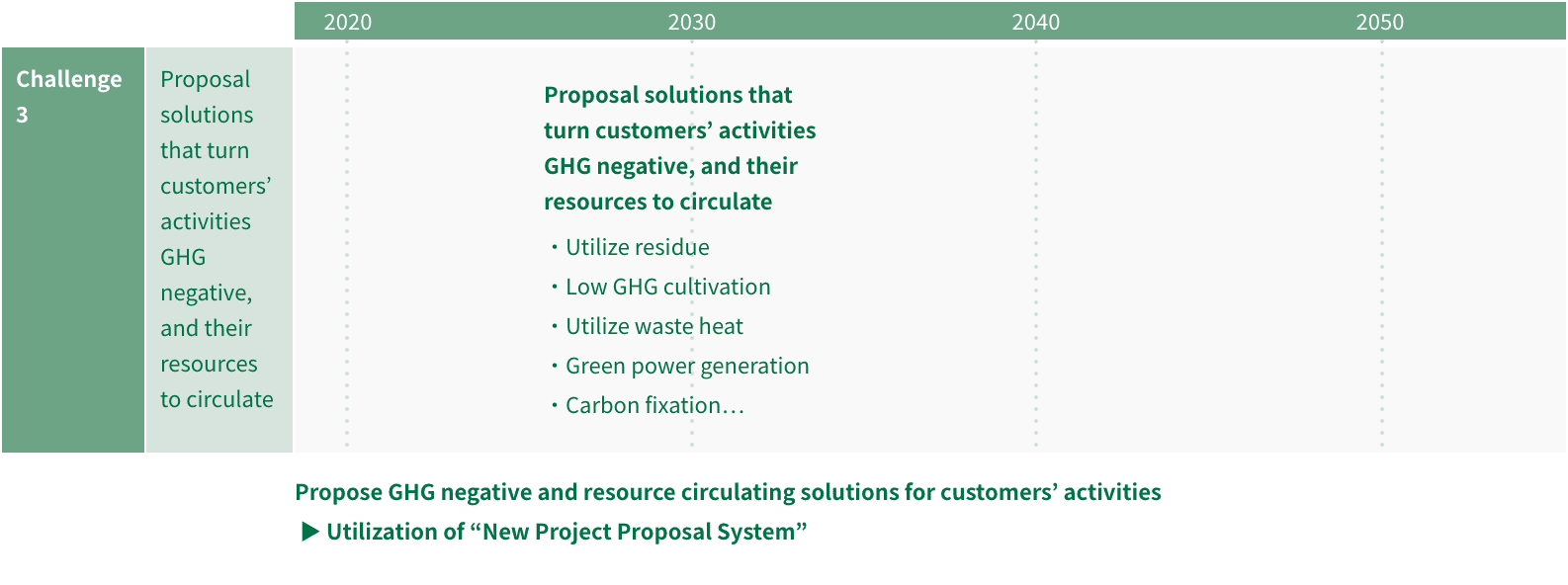

 කෘෂිකර්මය
කෘෂිකර්මය
 සමුද්ර වාණිජ
සමුද්ර වාණිජ
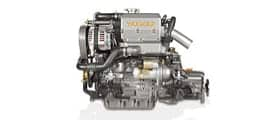 සමුද්ර විනෝදය
සමුද්ර විනෝදය
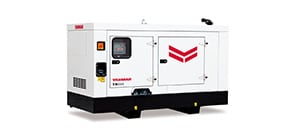 සංයුක්ත බලශක්ති නිෂ්පාදන
සංයුක්ත බලශක්ති නිෂ්පාදන